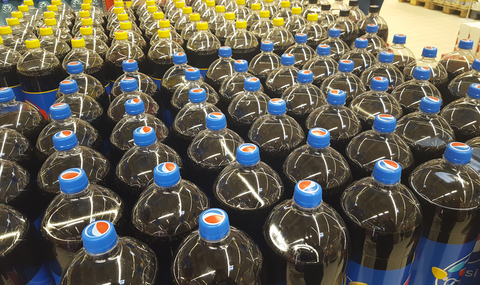PepsiCo, a global leader in the food and beverage industry, announces the completion of its latest green energy project of integrating photovoltaic panels at three sites in Romania, specifically in Dragomirești, Popești-Leordeni, and Covasna.
The project supports PepsiCo Positive (pep+) decarbonization goals, as PepsiCo strives to achieve net-zero by 2040 and represents a local investment of $2.1 million in over 3,000 photovoltaic panels, with a combined installed capacity of 1,700 kWp and the potential to generate over 1,300 MWh of green electrical energy per year. The use of these photovoltaic panels is estimated to result in an annual reduction of greenhouse gas emissions (GHG) by approximately 500 tons, which is equivalent to the benefit of planting over 15,000 trees. Looking ahead, PepsiCo is currently evaluating the possibility of installing photovoltaic panels within all company buildings in Romania.
“The installation of photovoltaic panels at our sites in Romania represents a significant step in reducing GHG as part of our pep+ goals, and our commitment to integrate sustainability into every aspect of our operations,” said Daniel Drăgușin, East Balkans Supply Chain Director, PepsiCo. “In addition to driving net-zero productivity, investing in photovoltaic panels also brings economic advantages. Our own electricity production allows us to reduce costs compared to purchasing from the grid.”
PepsiCo Romania is dedicated to minimizing its environmental impact across all areas of its operations. The company consistently invests in energy-efficient solutions, the use of hybrid and electric vehicles, transportation optimization, and the implementation of other sustainable initiatives. Regarding its fleet, PepsiCo reached an 80 percent hybrid vehicle percentage at the end of last year.
PepsiCo has been operating and investing in Romania for over 30 years. Over the past decade, the company has directly invested $320 million in Romania, strengthening its role as a regional business leader, production and distribution hub, and driver of sustainable practices. For example, the new automated manufacturing line installed in 2023 in the beverages plant now produces up to 1 million bottles per day, simultaneously using 30 percent less energy than its former, conventional line.

